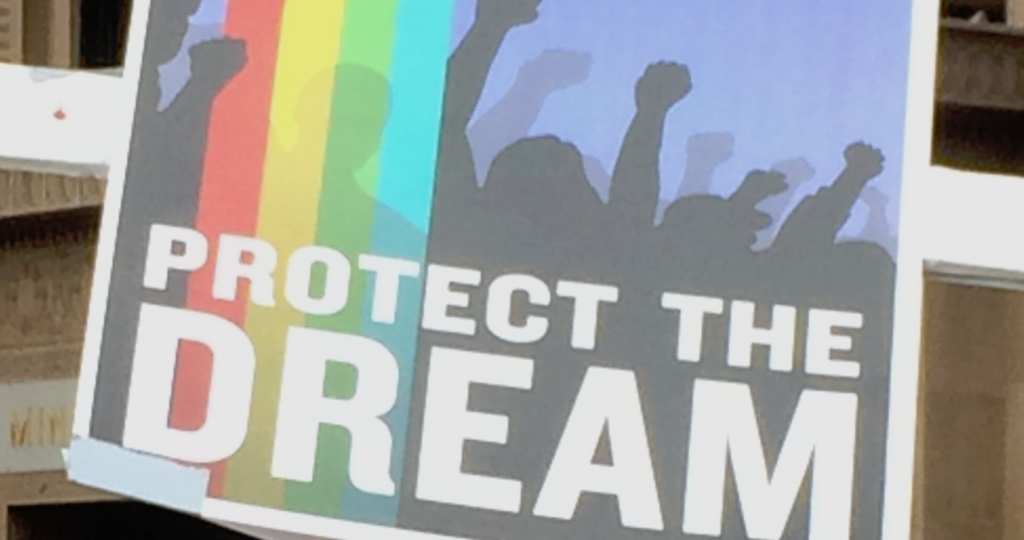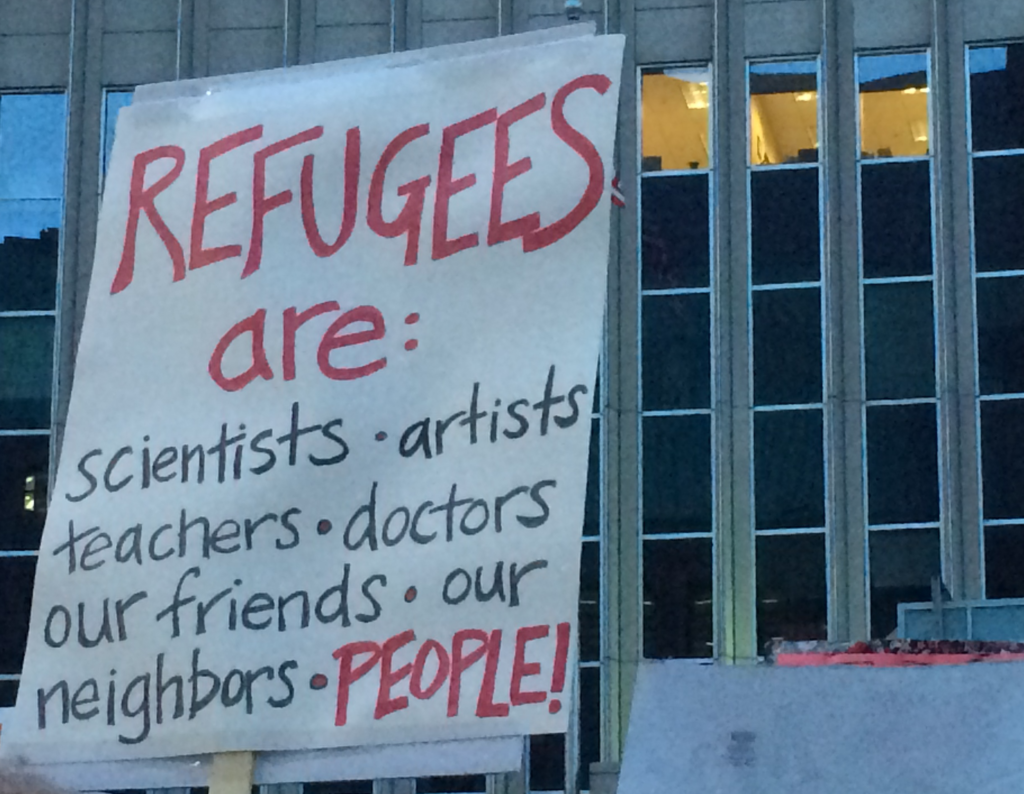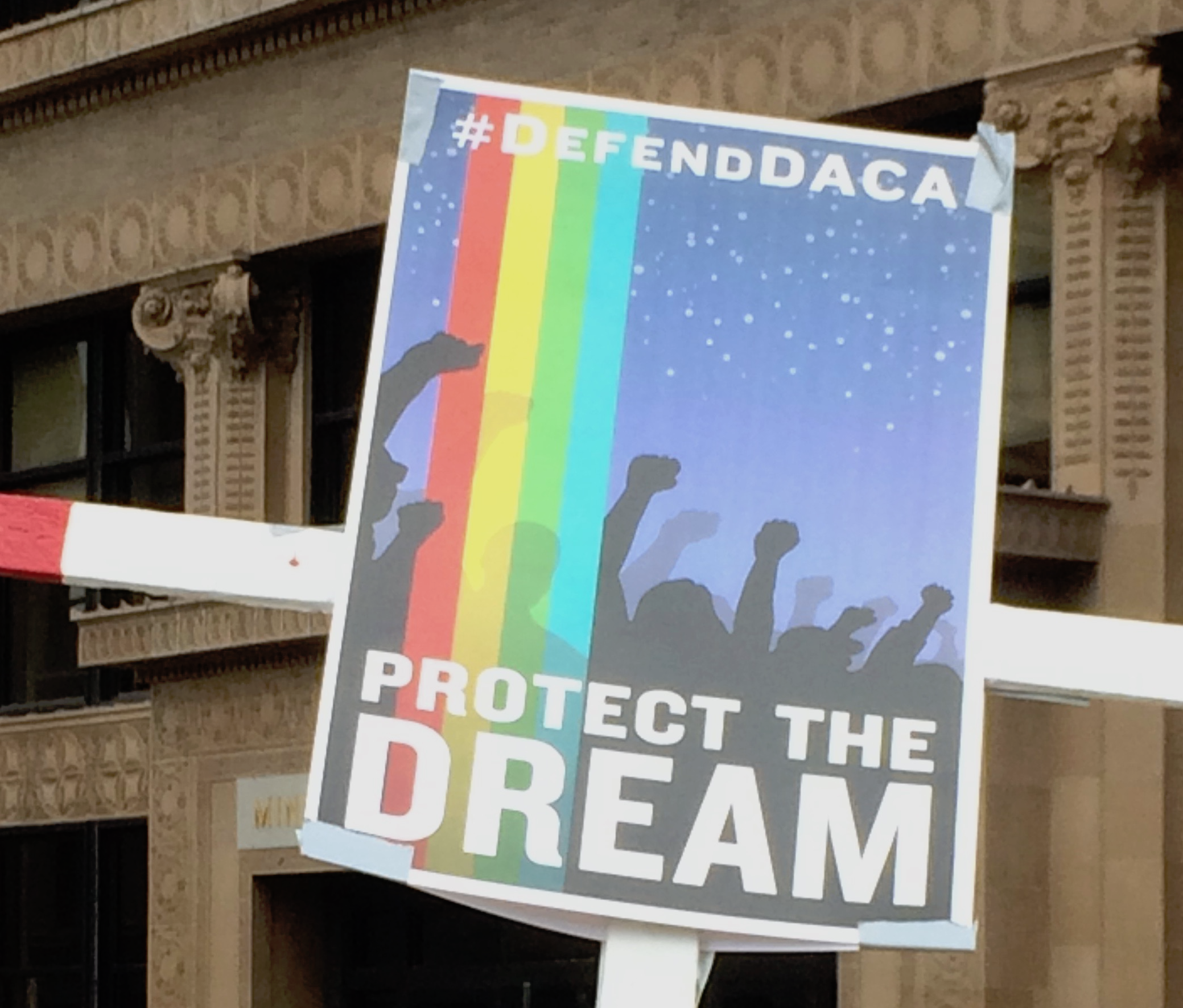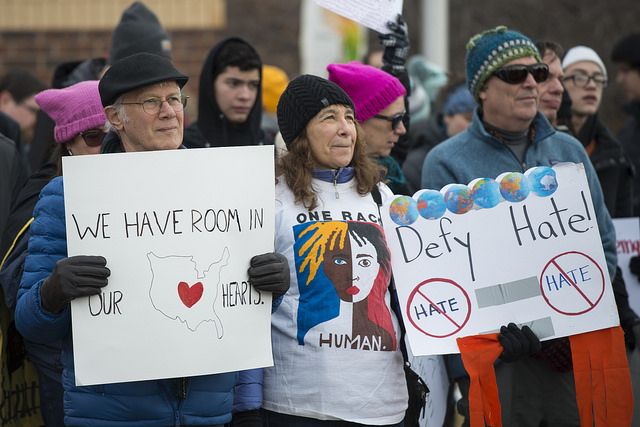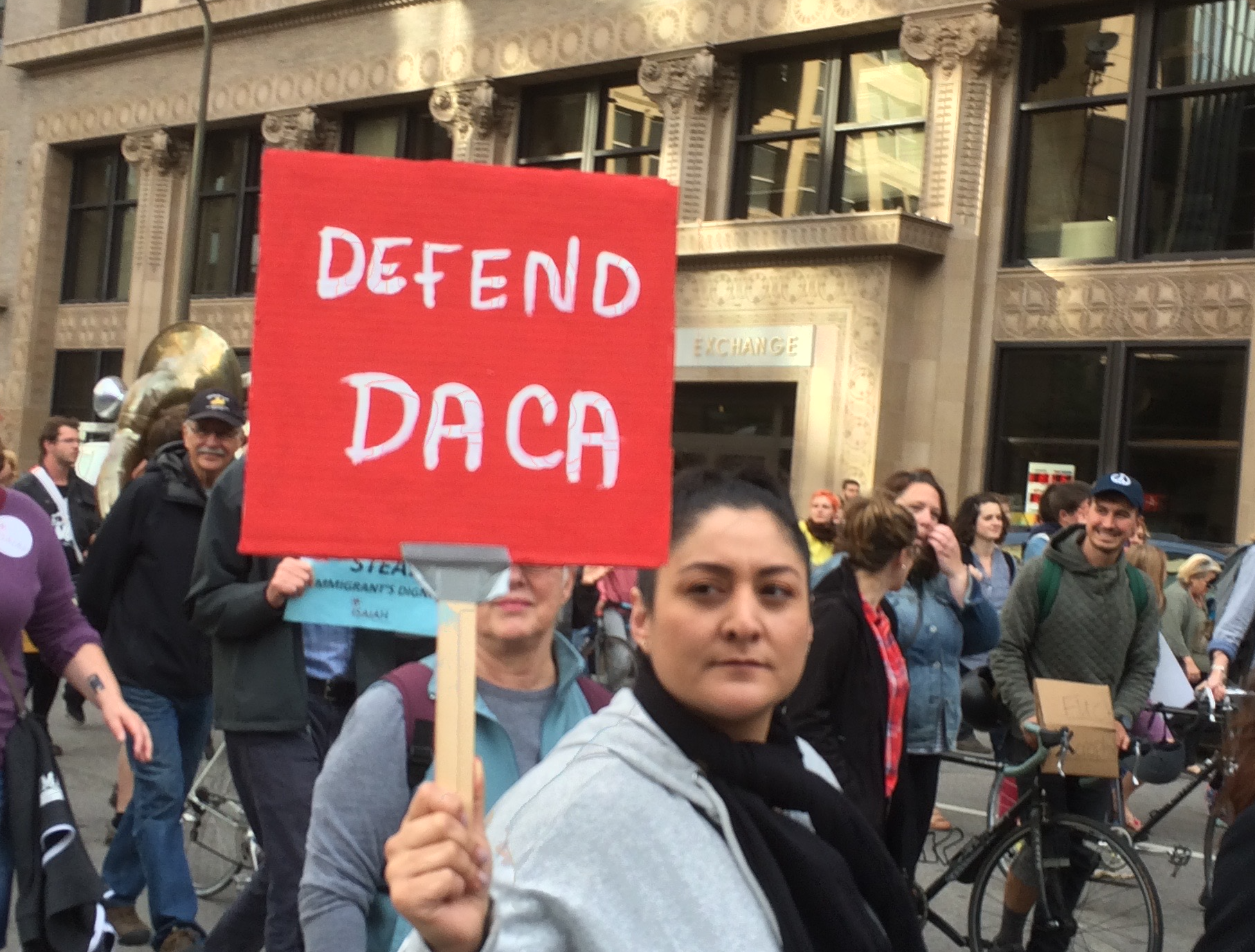- Since 2012, DACA has granted two-year deferrals from deportation to undocumented immigrants who arrived in the United States as children (DREAMers), have been here for at least five years, and have committed no serious crimes.
- 9 million people are eligible for DACA protections, and nearly 800,000 have been granted deferred status since 2012.
- The average age at the time of arrival to the U.S. was 6 years of age and average age today is 24.
DACA and the United States
- Data and survey results from DACA recipients show transformative socio-economic benefits:
- 100% are between the ages of 15-36,
- 100% have passed extensive background checks and have not committed any serious crimes,
- 90% applied for a driver’s license or state ID, and 50% became organ donors,
- 90% are employed,
- 72% have enrolled in classes post-high school,
- 63% got a better job; hourly rates increased from $10.29 to $17.46/hr.,
- 57% received their first credit card.
- Research from the Institute on Taxation and Economic Policy shows that DACA recipients pay an estimated $2 billion each year in state and local taxes. Extending a path to citizenship for these immigrants would increase this contribution to $2.53 billion each year.
DACA and Minnesota
- As of August 2018, 5,670 Minnesotans had received DACA status, although 9,000 met the criteria to apply for the program, according to the Migration Policy Institute.
- Minnesota’s DACA recipients live in every Congressional district and come from countries ranging from Mexico to South Korea, Laos, Ivory Coast and Canada.
The Center for American Progress reports that DACA recipients in Minnesota
- pay $57.5 million in federal taxes annually
- pay $31.2 million in state and local taxes annually
- have a spending power of $236.1 million annually
- own 300 homes
- make $1.5 million in mortgage payments each year
- pay $25.4 million in rent annually
Minnesota needs DACA and immigrants for continued economic growth:
- Research from the Center for American Progress estimates that ending the DACA program would cost Minnesota an estimated $377 million in annual GDP.
- Research from the University of Minnesota and Greater MSP concludes that Minnesota’s economy not only needs all DACA holders to remain but Minnesota also should increase immigration by 4.5 times to offset workforce shortages and to maintain our economy’s status quo growth.
- A 2015 study done by the Minneapolis Foundation and the Minnesota Chamber of Commerce shows that DACA recipients in Minnesota report their status helped them pursue higher education, gain health insurance coverage, and build careers.
- One ILCM client’s comments are representative of the transformative impact of the DACA program: “DACA has helped my life tremendously. I now have the opportunity to better myself, go to college and accomplish a career. Now I feel like I belong.”
Threats to DACA and DREAMers
- The Administration rescinded DACA on September 5, 2017. Without DACA protection, DREAMers are at risk of detention and deportation.
- Since September 5th, 2017 no new applications have been allowed and DACA holders are much more mistrustful of renewing. An estimated 120,000 children nationwide under the age of 15 would have been eligible for DACA. Instead, they are now at risk of deportation.
- Federal court injunctions allowed some DACA holders to renew, while court battles over the administration’s action continued. On June 19, 2020, the U.S. Supreme Court overturned the administration action. This should mean that DACA continues and that new applications can be made. Instead of setting up procedures to accept new applications, the administration threatened to take other action to end DACA. As of June 22, it is unclear what will happen next. In the long run, only Congress can grant long-term protections for DACA holders.
Here’s where to go for more information:





